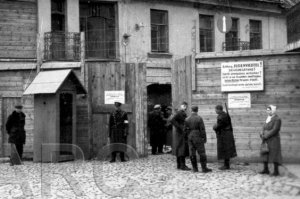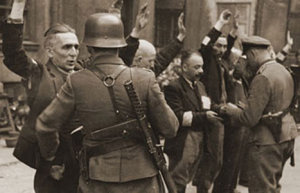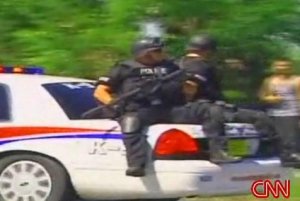December 17th is the International Day to End Violence Against Sex Workers
December 17th, 2008 is the 6th annual International Day to End Violence Against Sex Workers.
From GT 2005-12-17: December 17th is the International Day to End Violence Against Sex Workers
The commemoration began from the Sex Workers' Outreach Project's memorial and vigil for the victims of the Gary Ridgway, the Green River Killer. Since then its purpose has expanded to a memorial for, and protest against, all forms of violence against women in prostitution and elsewhere in the
sex industry.I'm opposed to prostitution as an industry, on radical feminist grounds. I frankly have very deep and sharp differences with the organizers of the event, and I'm iffy at best towards the rhetorical framework of
sex workas a whole, for reasons that are way beyond the point of this post). But so what? The day is an important one no matter what differences I may have with the organizers. Real steps towards ending the ongoing daily violence against women in prostitution and elsewhere in thesex industryare more important than that; here as much as anywhere — probably more than anywhere else — women's lives are at stake.
You can read the rest at the original post. Any serious commitment to freedom for, and an end to violence against, women, means a serious commitment to ending violence against women who work in the sex industry. All of it. And that means any kind of violence, whether rape, or assault, or robbery, or abduction, or confinement against her will, or murder. No matter who does it. The one image of violence against sex workers that the malestream media never tires of repeating is the roving madman, cutting women down in the streets. But roving madmen come in a lot of shapes and sizes and uniforms. It may be a serial killer. But it may be a pimp. Or a trafficker. Or a john who imagines that paying for sex means he owns a woman’s body. Or, lest we forget, it may be a cop who believes that his badge, and his victim’s status in the system of patriarchal sex-class, makes absolutely any kind of sexual predation or physical torture a cop’s prerogative and nothing better than what the victim deserves. Or, lest we forget, a cop or a prosecutor or an immigration control freak, who calls the violence of an assault, restraint, and involuntary confinement an arrest
or a sentence
under the color of The Law. The Law has no more right than anyone else to hurt women or shove them around.
No matter who does it, this kind of violence — violence against peaceful people whose work, whatever you think of it, is honest work for willing customers, and is a way to get by, and doesn’t do one thing to threaten or violate the rights of a single living soul — violence against women who are made vulnerable by the violence and the killing indifference of the State — violence against women practiced in the name of enforcing patriarchal sex-class and misogynistic hatred for overtly sexual
women — is wrong, absolutely wrong, and it has to stop. Immediately, completely, and forever.
In Las Vegas tonight, SWOP-Las Vegas is holding a vigil:
Reminder! TONIGHT in Las Vegas…
Join SWOP-Las Vegas to commemorate December 17th, the International Day to End Violence Against Sex Workers!!
Las Vegas
Wed, December 17th7:00 pm:
Meet at The Center: 953 E. Sahara Ave., Suite B-31, Las Vegas, NV, 89104. (In the Commercial Center) Phone at The Center: 702-733-9800
We will memorialize those sex workers who have lost their lives, and honor those who are missing. We’ll also make signs for the vigil.
8:15 pm:
We will hold a vigil in The Center parking lot with candles and then take our signs and red umbrellas to Sahara, where we will walk towards the strip. We will have masks for those who wish to use them. Afterward, we will return to Commercial Center to eat Thai food! Yum!
For more information, email us at info(at)swop-lv.org or call us toll-free at 1-866-525-7967, ext. 701.
In Washington, D.C., sex workers’ freedom and harm-reduction groups are coming together for a National March for Sex Workers’ Rights:
Advocates from across the nation will converge to mark the 6th Annual Internatinal Day to End Violence Against Sex Workers (IDEVASW). We are calling for an end to the unjust laws, policing, shaming and stigma that oppress our communities and make us targets for violence. We will both honor the lives of sex workers whose lives have passed and celebrate our vital movement. SWOP-USA, Different Avenues, HIPS, SWANK, Desiree Alliance, and many allies in harm reduction and social justice welcome your support. Join us as we march on Washington to demand human rights!
I wish that I could attend an event tonight but I will be away, traveling. In commemoration of the day, in memory of the 48 women murdered by Ridgway, and in solidarity with the living, I have contributed $120.00 tonight to Helping Individual Prostitutes Survive, a harm reduction group that provides counseling, safety resources, clothing, and food to prostitutes on the streets of the Washington, D.C. area, and $120.00 to Alternatives for Girls, whose Street Outreach Project provides similar services out of a van along the Cass Corridor in downtown Detroit. For other groups that provide similar resources and mutual aid, you can check out the links at the end of my original post.
May we all live free in the glory and joy of life that every human being deserves.
—Daisy Anarchy, I deserve to be safe
Remember. Mourn. Act.
See also:
- GT 2008-11-19: Gynocide: violence against women in prostitution in Las Vegas
- GT 2008-11-11: R.I.P. Duanna Johnson
- GT 2008-10-24: Ending State violence against women in prostitution in San Francisco
- GT 2008-06-30: Law and Orders #8: Memphis cop Bridges McRae "exceeds expectations" by punching Duanna Johnson repeatedly in the face with handcuffs over his knuckles for failing to stand up on command in the booking area at 201 Poplar
- GT 2008-03-10: Rapists on patrol (#2)
- GT 2007-12-21: Rapists on patrol
- GT 2005-12-17: December 17th is the International Day to End Violence Against Sex Workers





